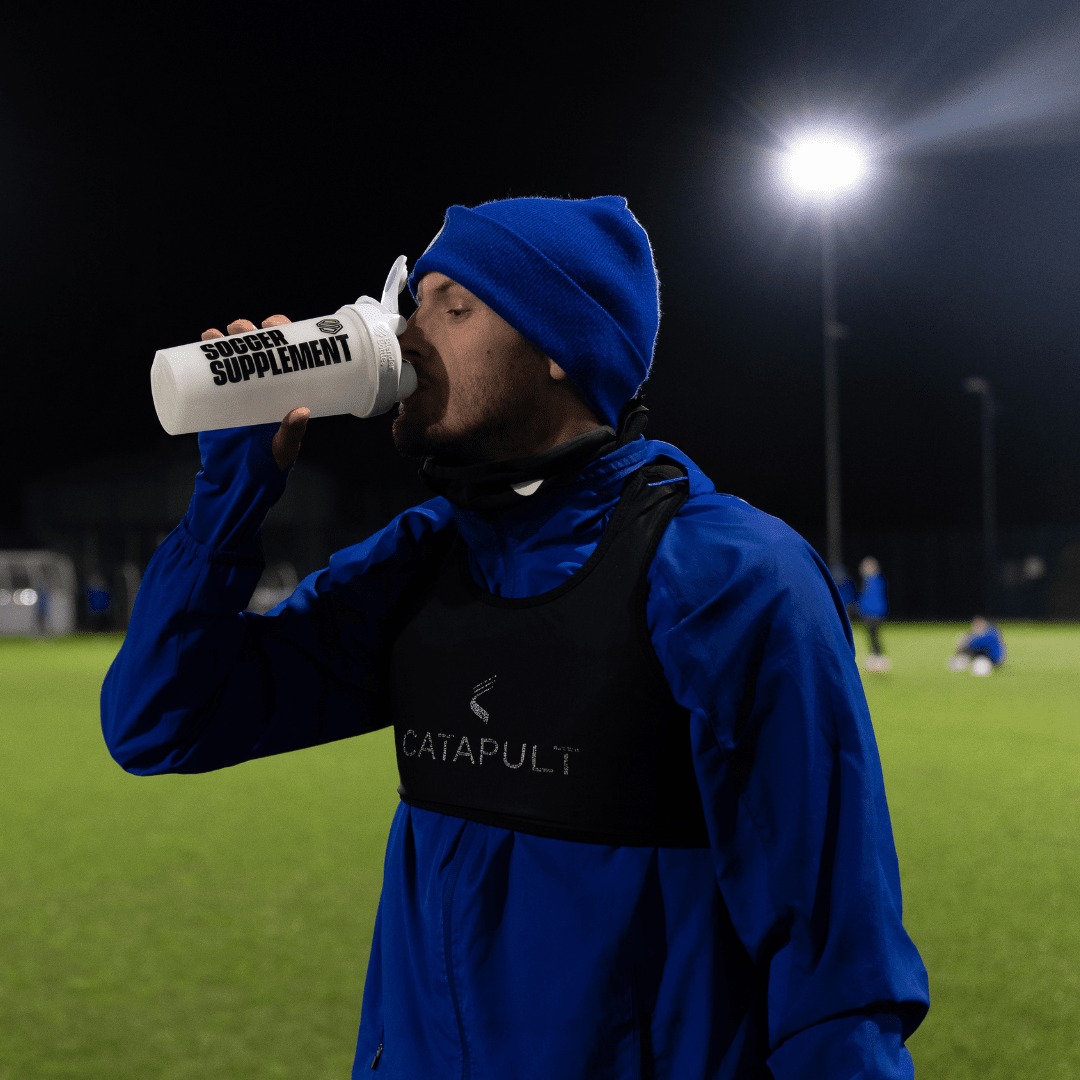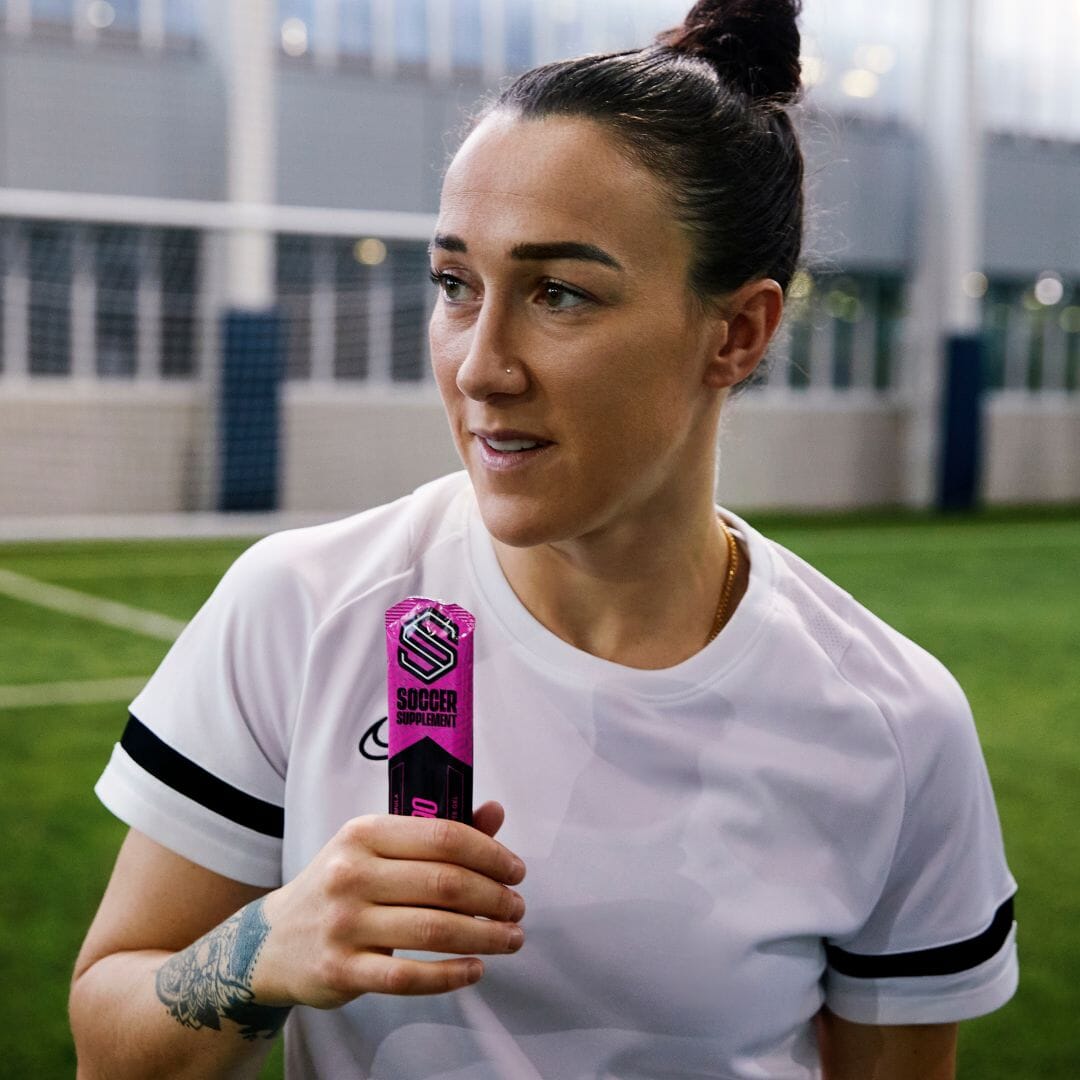Sports Nutrition: Why Do We Need To Fuel For Football?
Football is a high-intensity sport and requires endurance to be able to play for the whole 90 minutes while maintaining skill levels and the ability to perform multiple sprints to beat your man, get up and down the touchline or work box to box in the middle of the field.
Analysis of football shows that most mistakes are made towards the end of the game, as well as less distance being covered and fewer sprints made.
The primary reason for this is fatigue, so it’s important to optimise our diet to fuel properly and perform for the whole game. This is why sports nutrition is so imperative for athletic performance.
When we talk about fuelling for football, we predominantly want to focus on carbohydrate. Carbohydrates are the fuel that allows us to work at higher intensities for the longest possible duration, and complete more sprints and distance.
Without enough carbohydrate, we are unable to do these things. It’s like having a car that only goes up to third gear, and when we want to go into 4th or 5th, it doesn’t happen. Pre-game fuelling can be split into 3 separate areas of focus. Firstly, there are the 36-48 hours before kick-off — secondly, the 3 hours before heading out onto the pitch. Finally, the mid-game and half-time strategies that we can put in place.
Fuelling before a game used to just mean an extra helping of pasta at dinner the night before a game. However, we know that to top up our muscle and liver glycogen (the form of stored carbohydrate), we need to increase our carbohydrate intake for much longer; around 36-48 hours before the start of the game.
So, for a traditional 3 pm Saturday kick-off, we’d look to increase carbohydrate from Thursday evening or Friday morning.
What would this look like? Well, the science of sports nutrition says we need 10-12 grams of carbohydrate per kilogram of our bodyweight per day in this time. For a 70kg player, this is 700-940g per day- a lot of carbohydrates!
There are some ways to make this a slightly less daunting task. Aiming for two carbohydrate sources per meal can be helpful (for example, chicken wraps with sweet potato wedges or pasta bake with a side of white bread).
Using fruit-based smoothies is a good way of getting in extra carbohydrates without feeling too much fuller, as is adding carb sources that are easy to consume lots of to your meals (an example might be adding banana and honey to porridge).
It might be useful to limit high fibre carbohydrate sources (such as wholemeal foods, whole grains and legumes) as they increase feelings of fullness and make it difficult to take in the required amount of carbohydrate.
PRE-GAME FUELLING
In the 2-3 hours before kick-off, we’re just looking to top up our already nearly full carbohydrate stores.
Again, this will come down to a personal preference thing; some players struggle with nerves and can’t eat a great deal before the game- but if we’ve managed to carbohydrate load in the days before, this isn’t too much of an issue.
Again, if we go with the example of a 3 pm kick-off, some might manage a lunch meal (a good example would be white pasta with tuna or chicken salad wraps) and a snack closer to game time, whereas some might only manage a snack 1-2 hours before kick-off.
This snack should be something higher in simple sugars, such as a banana, cereal bar or rice cakes.
Taking caffeine before a game has also been shown to improve physical performance in football.
Caffeine takes approximately 60 minutes to peak in the blood, so consuming a caffeine product one hour out from a game will help reduce fatigue and increase the distance covered.
Recommendations for caffeine are 3-6mg per kilogram of your body weight- so for a 70kg player, 210-420mg of caffeine pre-game would be recommended, which can be found in Focus90®.
MID-GAME NUTRITION
During the game, there are two real aims. One is to prevent dehydration, and the other to provide enough carbohydrate to use during the game.
Taking on fluids (particularly containing carbohydrate and electrolytes) where possible in breaks in play is important, particularly if the weather is hot or humid.
As opportunities to drink during a game can be limited, half-time is a great opportunity to top up fuel and fluid levels.
Any snacks or drinks should be carbohydrate-based, but after that, it’s very much down to personal preference! Some people prefer a carbohydrate-based drink (such as Hydrate90®), or a combination of water and a carbohydrate gel (such as Fuel90®) or a banana/sweets.
Caffeine gum may also be a useful addition to a half-time strategy, as it has a faster absorption time and can enter the bloodstream soon after use, providing a handy caffeine hit for the second half!
SUMMARY
To summarise, looking to increase carbohydrate in the diet two days before a game is a useful strategy to make sure that preparation has been optimised, and you are ready to play a full 90 minutes (plus potentially extra time).
Finding snacks that sit well with you and don’t cause any stomach upset to use prior to a game is important, and consuming 1-2 approximately, 1-3 hours before kick-off is a beneficial method of proper sports nutrition.
Finally, using half-time to top-up fuel stores with sweets, fruit, drinks and gels will help with performance in the second half.







